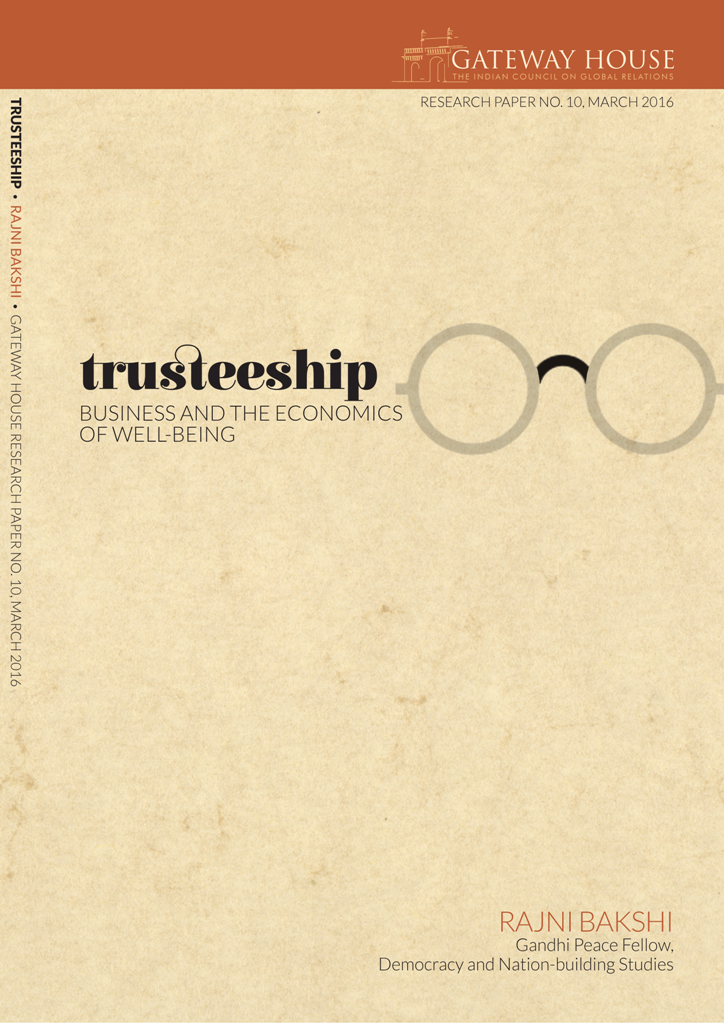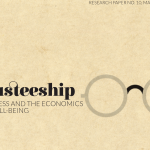
Summary
Economic reforms in India have often arrayed proponents of market-led growth against human rights advocates anxious that markets give primacy to profits over people.
A quarter century after the reform process was initiated in the early 1990s, this conflict has sharpened. At the same time, this narrative of polarised positions seems increasingly worn out. Business and society at large have always been intricately co-dependent. This interface is now taking many new forms across the world, with some entrepreneurs seeing profit as a means, rather than the end goal of business.
This paper explores these questions. It reviews if and how trusteeship can be a lodestar for globally navigating businesses and public policies through a period of technology- driven disruptions and the uncertainties unleashed by climate change.
Trusteeship is a frame of reference on which a wide variety of business models can be based. The emphasis is on transforming rather than demolishing the capitalist system. In essence, Gandhian trusteeship reposes faith in the capacity of individuals and entire classes to re-form themselves, on the premise that the capacity to seek redemption is intrinsic to human nature.
There was logic rather than dreamy wishful thinking behind these claims. Gandhi believed that it is a fearful man who tyrannises others or attempts to accumulate wealth by force or by unfair means. By contrast, a voluntary adoption of trusteeship means respect for human dignity, fostering relations based on truth and shared goals. Thus, Gandhi urged labourers to approach employers from a position of strength and self-respect since labour is as vital a component of production as capital, land, and technology.
In a time mired by corruption and competitive greed, trusteeship may at first glance seem like a pipe-dream. Can this closer examination perhaps give you cause to rethink?
You can download the PDF version of this paper, here.
Rajni Bakshi is Gandhi Peace Fellow, Gateway House.
This paper was exclusively written for Gateway House: Indian Council on Global Relations. You can read more exclusive content here.
For interview requests with the author, or for permission to republish, please contact outreach@gatewayhouse.in.
©Copyright 2016 Gateway House: Indian Council on Global Relations. All rights reserved. Any unauthorized copying or reproduction is strictly prohibited.


